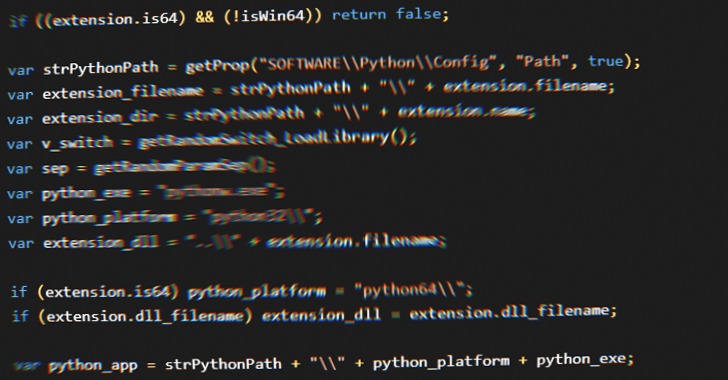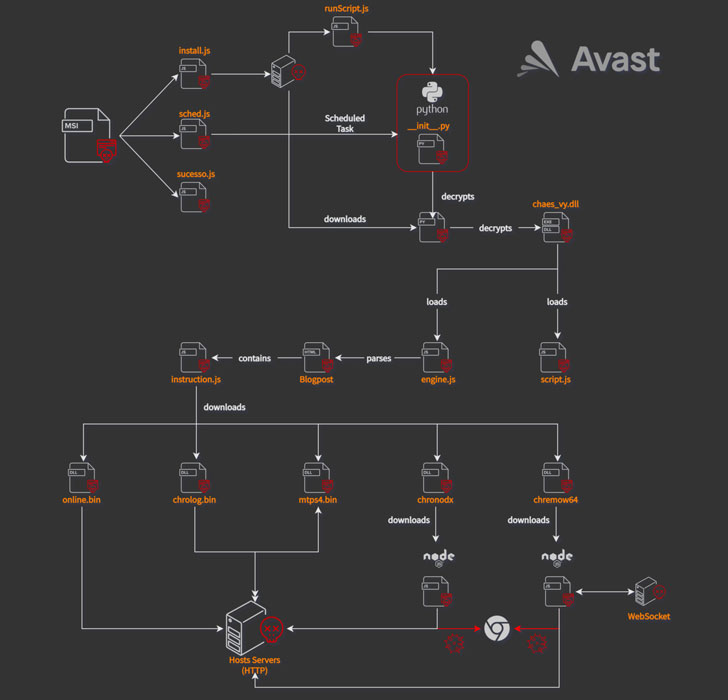A financially-motivated malware campaign has compromised over 800 WordPress websites to deliver a banking trojan dubbed Chaes targeting Brazilian customers of Banco do Brasil, Loja Integrada, Mercado Bitcoin, Mercado Livre, and Mercado Pago.
First documented by Cybereason in November 2020, the info-stealing malware is delivered via a sophisticated infection chain that’s engineered to harvest sensitive consumer information, including login credentials, credit card numbers, and other financial information.
“Chaes is characterized by the multiple-stage delivery that utilizes scripting frameworks such as JScript, Python, and NodeJS, binaries written in Delphi, and malicious Google Chrome extensions,” Avast researchers Anh Ho and Igor Morgenstern said. “The ultimate goal of Chaes is to steal credentials stored in Chrome and intercept logins of popular banking websites in Brazil.”
The attack sequence is triggered when users visit one of the infected websites, upon which a pop-up is displayed, urging them to install a fake Java Runtime application. Should the user follow through the instructions, the rogue installer initiates a complex malware delivery routine that culminates in the deployment of several modules.
Some of the intermediary payloads are not only encrypted but also hidden as commented-out code inside the HTML page of a Blogger blogspot domain (“awsvirtual[.]blogspot.com”). In the final stage, a JavaScript dropper downloads and installs as many as five Chrome extensions —
- Online – A Delphi module used to fingerprint the victim and transmit the system information to a command-and-control (C2) server
- Mtps4 (MultiTela Pascal) – A Delphi-based backdoor whose main purpose is to connect to the C2 server and wait for a responding Pascal Script to execute
- Chrolog (ChromeLog) – A Google Chrome password stealer written in Delphi
- Chronodx (Chrome Noder) – A JavaScript trojan that, upon detecting the launch of Chrome browser by the victim, closes it immediately and reopens its own instance of Chrome containing a malicious module that steals banking information
- Chremows (Chrome WebSocket) – A JavaScript banking trojan that records keypresses and mouse clicks on Chrome with the goal of plundering login credentials from users of Mercado Livre and Mercado Pago
Stating that the attacks are ongoing, Avast said that it had shared its findings with the Brazilian CERT to disrupt the malware’s spread. That said, Chaes-related artifacts continue to remain on some of the infected websites.
“Chaes exploits many websites containing CMS WordPress to serve malicious installers,” the researchers concluded. “The Google Chrome extensions are able to steal users’ credentials stored in Chrome and collect users’ banking information from popular banking websites.”



